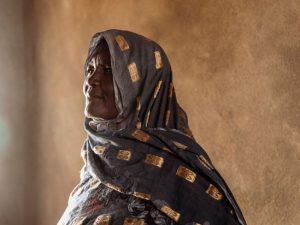Humanitarian crisis in Sudan worsens
The numbers of people displaced by the civil war in Sudan has nearly doubled since the start of the conflict, according to new data from the UN’ migration agency the International Organisation for Migration’s (IOM)
IOM’s Displacement Tracking Matrix (DTM) has found almost 7.1 million people are internally displaced within Sudan, of which 3.8 million are newly displaced as a result of the conflict.
Most internally displaced persons (IDPs) are in River Nile, East Darfur, Northern, South Darfur, Sennar, and White Nile states.
 The conflict erupted in mid-April between the Rapid Support Forces (RSF) and the Sudanese Armed Force (SAF) which previously had a power-sharing arrangement.
The conflict erupted in mid-April between the Rapid Support Forces (RSF) and the Sudanese Armed Force (SAF) which previously had a power-sharing arrangement.
The conflict has caused a severe humanitarian crisis as shortages of food, water, medicines, and fuel have become extremely acute.
Prices of essential goods have dramatically increased due to disrupted trade routes and limited access, making them unaffordable for those remaining in besieged towns and cities across Sudan.
Widespread human rights violations have been reported, including gender-based violence, forced displacement, and killings of civilians.
Since the onset of violence, more than one million people have fled to neighbouring countries, with Chad receiving the most arrivals followed by Egypt, South Sudan, Ethiopia, Central African Republic, and Libya. Of these, 67 per cent are Sudanese nationals.
Humanitarian aid requirements in Sudan are now at an all-time high, with 24.7 million people – or half of the country’s population – in need of humanitarian aid and protection.
“The people of Sudan deserve peace. Any further escalation of violence would further devastate the country and the region,” said IOM spokesperson Federico Soda.
Following the ramping up of the crisis, IOM’s Response Overview for Sudan and neighbouring countries has been revised to double the funding requirement to $US418 million for double the number of people – 1.9 million. To date, only 21 per cent has been funded.
Also, intensified fighting and other obstacles faced by aid organisations continue to make access to people in need extremely challenging in many areas of the country.
IOM is providing displaced people and host communities with essential items such as blankets and kitchen sets, health care, including mental health support, hygiene protection as well as cash assistance.
Recently, a cross-border convoy from Egypt to Sudan delivered 3,300 hygiene kits to Wadi Halfa, in the country’s north. Plans are underway to also deliver aid from Chad.
“As needs continue to rise, we reiterate our appeal to the international community to urgently support relief efforts and help ensure life-saving aid is delivered before it’s too late,” Ms Soda said.












